API Integrations
ARCUS® Connect, our native API, allows integration with other solutions, ensuring all information can be automatically shared across systems eliminating the need to re-key data.
Additionally, vital ESG and food safety information is collected directly from official sources and then the supplier record is updated automatically within ARCUS®.
ARCUS® Connect currently includes integrations to:
Filters
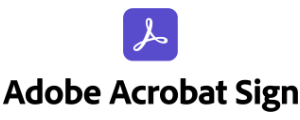

Adobe Acrobat Sign
ARCUS® Supplier Management Software now offers seamless integration with Adobe Acrobat Sign, further streamlining contract management processes. This powerful enhancement, which is available in SCM, allows users to:
- Accelerate contract execution.
- Enhance security.
- Improve collaboration.
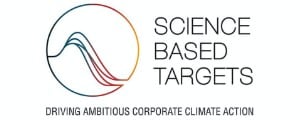

Science Based Targets initiative (SBTi)
SBTi drives ambitious climate action in the private sector by enabling organizations to set science-based emissions reduction targets. The initiative provides companies with a clearly defined path to reduce emissions in line with the Paris Agreement goals.
Trade Interchange’s ARCUS® Supplier Information Management (SIM) and eRFX solutions now offer a live integration with the Science Based Targets initiative, allowing you to automatically collect the following information:
- Company/ Financial Institution
- Organisation type
- Targets:
- Clearly-defined, science-based pathways for companies to reduce greenhouse gas emissions which have been reviewed and validated by the SBTi.
- Commitments:
- Demonstrate an organisation’s intention to develop targets and submit these for validation within 24 months.
- Near-term targets:
- Outline how organisations will reduce their emissions, typically over the next 5-10 years.
- And more…


Sedex
Sedex is a membership organisation that provides a leading online platform for companies to manage and improve working conditions in global supply chains.
Trade Interchange’s ARCUS® Supplier Information Management (SIM) solution now offers a live integration with Sedex, allowing you to automatically collect the latest SMETA audit information from your suppliers.
Some of the information updated directly from Sedex includes:
- Latest audit details for a particular site
- Audit changes report
- Date of the last audit
- Grouped by sites and organisations
- Audit findings
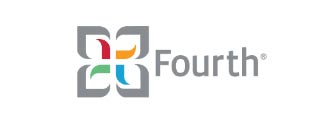

Fourth Recipe & Menu Engineering
The integration with Fourth’s Recipe & Menu Engineering solution enables the transfer of critical allergen, nutrition, packaging and pricing information, which has been entered by the supplier directly, automatically and without the need for re-keying.
Fourth and Trade Interchange have formed a strategic partnership to deliver the best-in-class solutions across the food, drink and hospitality sectors. This includes product information management, supplier information management, recipe management and purchase-to-pay solutions in these industries.
To date, this partnership has seen the successful integration between ARCUS® PIM and Fourth’s Recipe and Menu Engineering (RME) solution being deployed at numerous high-profile companies in the food and beverage sector, including TGI Fridays, The Restaurant Group and PizzaExpress. Suppliers directly enter all required product information via ARCUS®, and the required subset for menu development is automatically sent to Fourth’s RME, meaning a single source of data is used throughout this end-to-end solution.
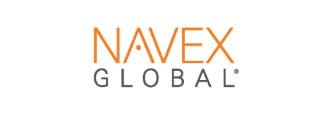

NAVEX Global RiskRate
The integration with NAVEX Global enables clients who are customers of both organisations to use the Risk Rate Tool as a Go/No-Go pre-qualifying tool, and ensures the information provided by the supplier is consistent and verified.
Trade Interchange’s ARCUS® Supplier Information Management (SIM) solution now offers a live integration with the NAVEX Global RiskRate database, allowing you to automatically collect the following information:
- Third-party type
- Company, organisation, or contact name
- Owner
- Approver
- Category
- Risk ratings
- Begin and end dates


Google Maps
The Google Maps integration utilises the functionality within the Google application to provide detailed information on the supplier locations, adding a level of accuracy and reassurance to the information while ensuring our clients have the class-leading functionality within our products.
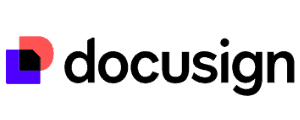

DocuSign
The DocuSign integration allows documents to be signed using electronic signatures whilst adding additional information such as the date and job title. Once the document is signed, it is stored within the ARCUS® database. This removes the need to download documents, manually sign them, scan and then upload them back into the system.
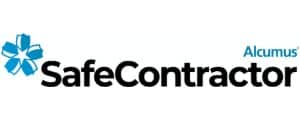

SafeContractor
SafeContractor allows companies to verify supplier compliance for Health and Safety. This can be integrated with the ARCUS® on-boarding process, allowing for visibility of compliance information in one central location, helping to improve efficiency.
Trade Interchange’s ARCUS® Supplier Information Management (SIM) solution now offers a live integration with Alcumus SafeContractor, allowing you to automatically collect the following information:
- Company name and reference
- SafeContractor stage and change date
- Address
- Expiry dates (Employer’s Liability Compulsory insurance, Professional Indemnity insurance, Public Liability insurance, Product Liability insurance)
- Work categories
- And more…
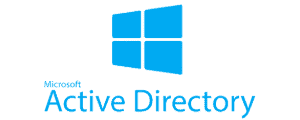

Microsoft Active Directory
Through integration with Microsoft Active Directory, we can consolidate individual company access credentials or rules alongside Single Sign-On. This provides a streamlined means of signing into the platform as well as enhanced security on multiple levels.
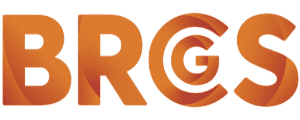

BRCGS
The British Retail Consortium (BRCGS) is a trade association for the UK food retail industry formed in 1992.
ARCUS® Supplier Information Management (SIM) now integrates directly with BRCGS, ensuring that critical supplier GFSI information is automatically kept up to date, helping to ensure compliance across the supply base.
Some of the information collected and updated includes:
- Site name, grade, expiry date, and address
- Audit details: Issue date, expiry date, standard, audit ID
- Audit standard (E.G. Food)
- Categories (E.G. 07 – Dairy, liquid egg)
- Scope
- Certification body
- Additional modules
- And more…
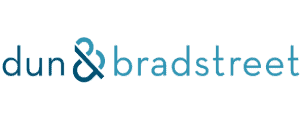

Dun & Bradstreet
Dun & Bradstreet provides commercial data, analytics, and insights for businesses.
ARCUS® Supplier Information Management (SIM) and eRFX integrate directly with Dun & Bradstreet’s financial database. If a supplier enters their D-U-N-S number into the system, SIM and eRFX automatically populate the financial risk rate data into the supplier record, and this information is checked daily.
Information collected and updated from Dun & Bradstreet includes:
- Company information
- ESG insights
- Financial strength insights
- And more…
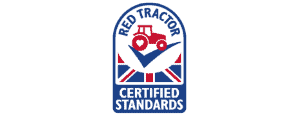

Red Tractor Assurance
Red Tractor champions British food and farmers and is the UK’s largest food and farm standards scheme. It covers all areas of food production from animal welfare and food safety to traceability and environmental protection and is the only UK scheme to do so.
Trade Interchange’s ARCUS® Supplier Information Management (SIM) and eRFX solutions now offer a live integration with the Red Tractor database, allowing you to automatically collect the following information:
- Tagged site name, postcode, and country
- Scheme
- Membership number and status
- Certifier
- Certificate status and expiry date
- Check date
- And more…
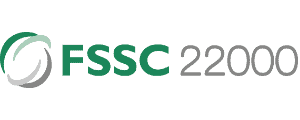

FSSC 22000
The Food Safety System Certification 22000 (FSSC 22000) offers a complete certification scheme for the auditing and certification of food safety management systems.
Trade Interchange’s ARCUS® Supplier Information Management (SIM) solution now offers a live integration with the FSSC 22000 database, allowing you to automatically collect the following information:
- Organisation name
- Address
- Scope of certification
- Date issued and valid until
- Category
- Status
- And more…


Soil Association
The Soil Association was one of the founders of the global organic movement and developed some of the world’s first organic standards to protect producers, consumers, and the soil by endorsing nature-friendly farming methods.
They continue to develop high standards for food, farming, health and beauty, and textiles, as well as for forestry across Europe to influence legislation.
Trade Interchange’s ARCUS® Supplier Information Management (SIM) and eRFX solutions now offer a live integration with the Soil Association database, allowing you to automatically collect the following information:
- Certificate date expiry
- Date last inspected
- Organisation
- Licensee
- Licence type
- Status
- And more…
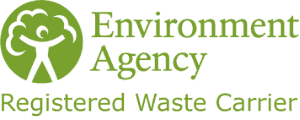

Register of Waste Carriers, Brokers, and Dealers
People or businesses who transport, buy, sell or dispose of waste, or arrange for someone else to do so in the UK, must be registered as a Waste Carrier, Broker or Dealer.
Trade Interchange’s ARCUS® Supplier Information Management (SIM) and eRFX solutions now offer a live integration with the Environment Agency’s Registered Waste Carriers, Brokers, and Dealers database, allowing you to automatically collect the following information:
- Business name
- Registration number
- Registration type
- Address
- Postcode


Hamilton Grant
Hamilton Grant’s solutions enable food and beverage companies to transform their control over regulatory compliance whilst bringing better tasting and more profitable products to market faster.
Trade Interchange’s ARCUS® Product Information Management solution now offers a live integration with Hamilton Grant, allowing you to automatically collect the following information:
- Ingredient name
- Nutritional value (E.G 100g protein, 500g carbohydrate)
- Calories (E.g. under 650)
- Intolerances
- Free-from wheat, celery, crustacean, etc
- Suitable for vegetarians, vegans, halal, coeliac, etc
- And more
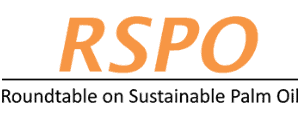

Roundtable on Sustainable Palm Oil (RSPO)
The RSPO has developed a set of environmental and social criteria which companies must comply with to produce Certified Sustainable Palm Oil (CSPO). When applied properly, these criteria help to minimise the negative impact of palm oil cultivation on the environment and communities in palm oil-producing regions.
Trade Interchange’s ARCUS® Supplier Information Management (SIM) and eRFX solutions now offer a live integration with the RSPO, allowing you to automatically collect the following information:
- Member name
- Certified unit/ facility
- Country
- Supply chain model
- License start & expiry dates
- Certification body
- Certificate number
- RSPO PO ID
- Status
- Certificate
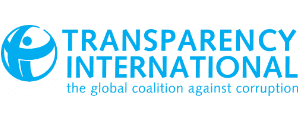

Corruption Perceptions Index
The Corruption Perceptions Index ranks countries across the world based on how corrupt their public sectors are perceived to be. The results are given on a scale of 0 to 100, where 0 is highly corrupt and 100 is very clean.
Some of the information collected includes:
- Country
- ISO 3166 alpha-3 code
- Region
- Score
- Rank
- Sources
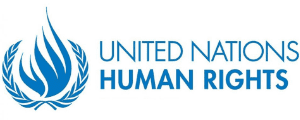

Universal Human Rights Index
The Universal Human Rights Index is a database that gives access to human rights recommendations issued by the three pillars of the United Nations human rights protection system.
Trade Interchange’s ARCUS® Supplier Information Management (SIM) and eRFX solutions now offer a live integration with the Universal Human Rights Index, allowing you to automatically collect the following information:
- Countries concerned
- Recommending body
- Themes
- Affected persons
- Document publication date
- Date of UHRI publication
- And more…
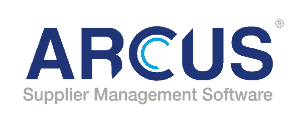

Custom Integrations
We have created bespoke APIs to integrate to our customers ERP systems including SAP, Oracle and Microsoft Dynamics.
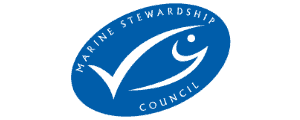

Marine Stewardship Council (MSC)
The MSC Fisheries Standard is used to assess if a fishery is well-managed and sustainable. The Standard reflects the most up-to-date understanding of internationally accepted fisheries science and management. The MSC Fisheries Standard is reviewed and developed in consultation with scientists, the fishing industry and conservation groups.
Trade Interchange’s ARCUS® Supplier Information Management (SIM) and Product Information Management solutions now offer a live integration with the MSC, allowing you to automatically collect the following information:
- Check if a fishery + species has a valid MSC certificate
- Check if a Chain of Custody certified company + Species has a valid MSC certificate
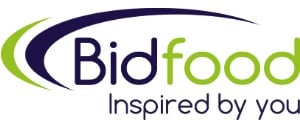

Bidfood
Bidfood is a foodservice wholesaler and distributor based in the United Kingdom.
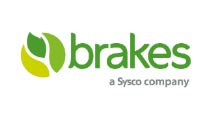

Brakes
Brakes are the leading wholesale foodservice supplier in the UK and are the catering and food suppliers of choice for thousands of chefs in the catering industry. The Brakes enhanced allergens API returns product data (incl. all available allergens data) for requested Brakes products and automatically populates these fields within ARCUS® Product Information Management (PIM).
Some of the information updated directly from Brakes includes:
- Allergens (including “contains” and “may contain” for 28 allergens)
- KJ and Kcal
- Pack size
- Carbohydrates, fats, protein, fibre, and sodium
- Ingredients
- Dietary & lifestyle (vegetarian and vegan suitability)
- And more…
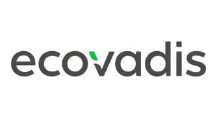

EcoVadis
EcoVadis helps you manage your network both upstream and downstream, either by sharing your performance with your stakeholders or monitoring the performance of your own upstream value chain.
Information collected from EcoVadis into SIM includes:
- Overall score
- Environment score
- Labour & human rights score
- Ethics score
- Sustainable procurement score
